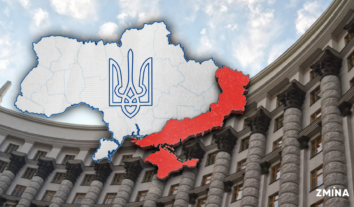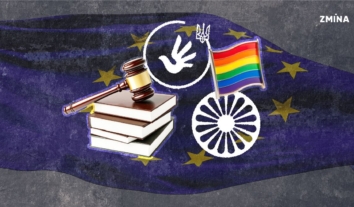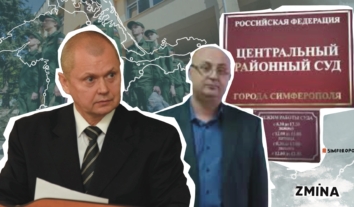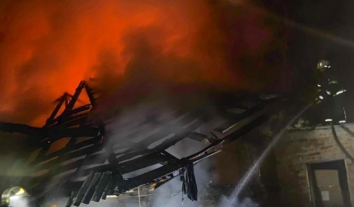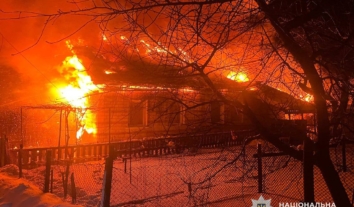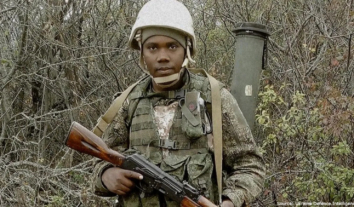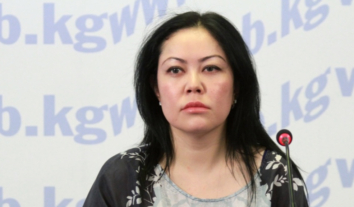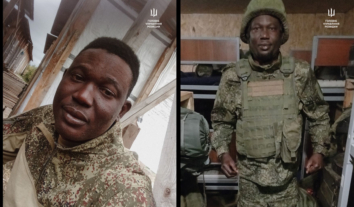Silent deportation: how the descendants of Crimean Tatars deported in 1944 are experiencing it again
More than 80 years have passed since the Stalin-era deportation of the Crimean Tatar people. Almost four decades ago, in 1989, Crimean Tatars began to return to their cherished homeland, Crimea. Over the years, families built homes, settled their lives, and breathed freely, reuniting with their loved ones. The horrors of that period remain in the memories of the elders like a terrifying legend.
However, Russia, which occupied the peninsula in 2014, has once again turned the fears of Crimean Tatars into reality. What is happening to Crimean Tatars now is what they themselves call “silent deportation”. The illegal authorities create such conditions that a person must either leave the peninsula if they do not like living under occupation, or if they show any resistance and are not loyal to the occupiers, they face persecution, illegal convictions and deportation far from Crimea.
The Human Rights Center ZMINA has been monitoring the human rights situation in the occupied Crimea since 2014. During this time, human rights defenders have documented numerous violations, particularly against journalists, activists and pro-Ukrainian local residents. As of today, the Russians are holding more than 200 political prisoners, the vast majority of whom are Crimean Tatars – 133.
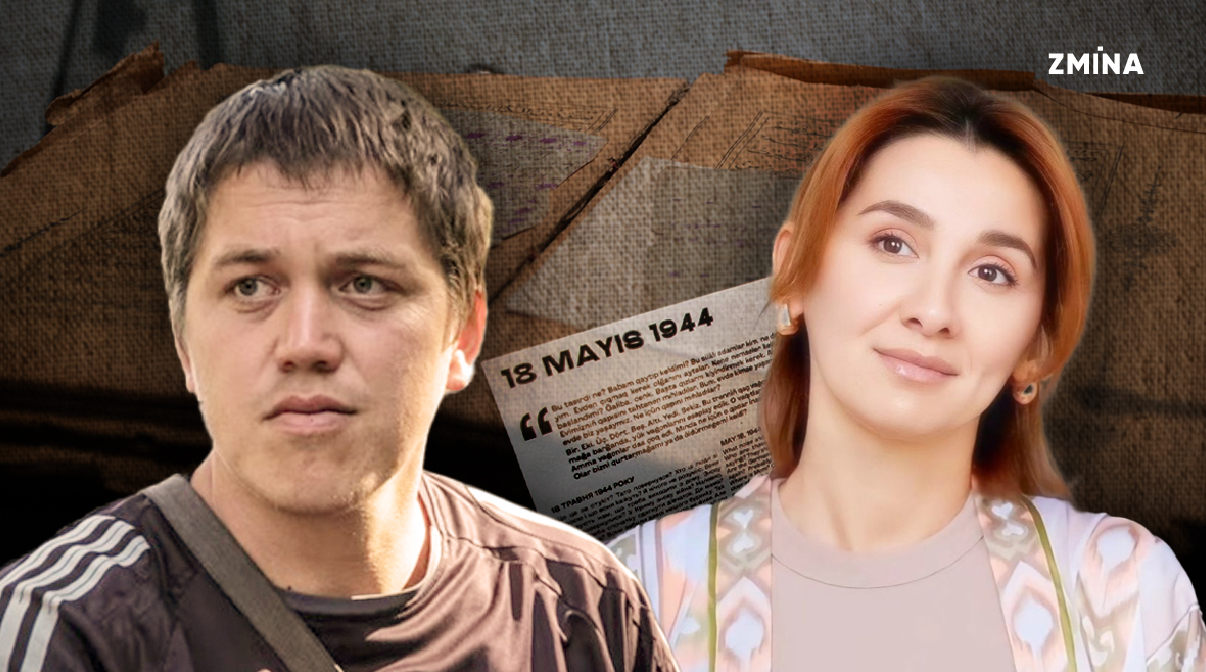
Fled to preserve their freedom and lives
The family of Rinat Paralamov, a Crimean Tatar and former political prisoner, was forced to leave the occupied city of Nyzhniohirskyi in Crimea. In 2017, Rinat, who opposed the Russian occupation, was abducted by the Russian Federal Security Service (FSB). He was tortured with electric shocks in an attempt to extract testimony against other Crimean Tatars for their alleged involvement in the religious organisation Hizb ut-Tahrir. He was accused under Article 222 of the Criminal Code of the Russian Federation (Illegal acquisition, transfer, sale, storage, transportation or carrying of a weapon, its main parts, ammunition). He was coerced to cooperate with the FSB, threatening the family members of the Crimean Tatars.
After the torture, the occupiers dumped Rinat near the railway station in Simferopol, where he was found by local activists. To save his freedom and life, he, his wife and their four children moved to Kyiv. Now they live in Germany.
Rinat himself calls their departure from their homeland a manifestation of deportation, which his family has experienced for the second time. During the deportation of 1944, Rinat’s family was sent to the Qashqadaryo region of Uzbekistan. On his father’s side, they were taken from Nyzhniohirskyi, and on his mother’s side – from Krasnoperekopsk. He was born in exile, as were his two brothers.
His grandmother and aunt told him that after the deportation, they were brought to Uzbekistan and placed in some kind of barracks. The family had four children at the time. The eldest daughter, Rinat’s aunt, had been sent to forced labour in Germany by the Germans during the occupation of Crimea. After the war, she managed to return home.
“She was in Berlin. She told me how she was sitting at the Brandenburg Gate, begging people for bread,” Rinat recalls.
At the same time, the man’s maternal grandmother, who was just a girl at the time, together with other children in Uzbekistan, went to gather mulberries that had fallen from the trees, and the guards chased them away for it. What they managed to collect was exchanged for flour. Then they made a kind of porridge out of it and ate it. Typhus was common, and many people died of hunger and disease.
Over time, the deported Crimean Tatars began to slowly settle down in their new home and build housing. The locals had different attitudes: some helped, others could even beat them, calling them traitors.
Rinat’s grandmother, then a young woman, went to work in logging in a desperate attempt to earn a piece of bread. The workers were felling wood, and she and other women were floating the logs down a mountain river. She worked knee-deep in icy water, and it was extremely hard.
She got married. Rinat’s mother was born there, in Uzbekistan.
The family returned to Crimea in 1989.
“That’s how things worked back then: one person would move first and sell their house in Uzbekistan. They couldn’t get much for it because the locals understood that they would sell a lot of houses now, as Crimean Tatars were determined to return home. In Crimea, the situation was completely different; on the contrary, housing prices went up because there was demand,” Rinat explains.
So they did the following: one person would come and buy a house somewhere in the village. Then another would come and live with the owner, looking for something nearby. Then the third… This is how it turned out that relatives and close friends settled close to each other.
This is exactly what Crimean Tatars value deeply – mutual support among loved ones and the desire to stay together. In Kyiv, where the Paralamov family lived until 2022, they also settled next to Crimean Tatars they had known back in Crimea.
Even after moving to Germany, Rinat’s family chose a city where other Crimean Tatar families were already living to be close to their own people. They communicate quite closely, and this helps to preserve the national identity and traditions of their people.
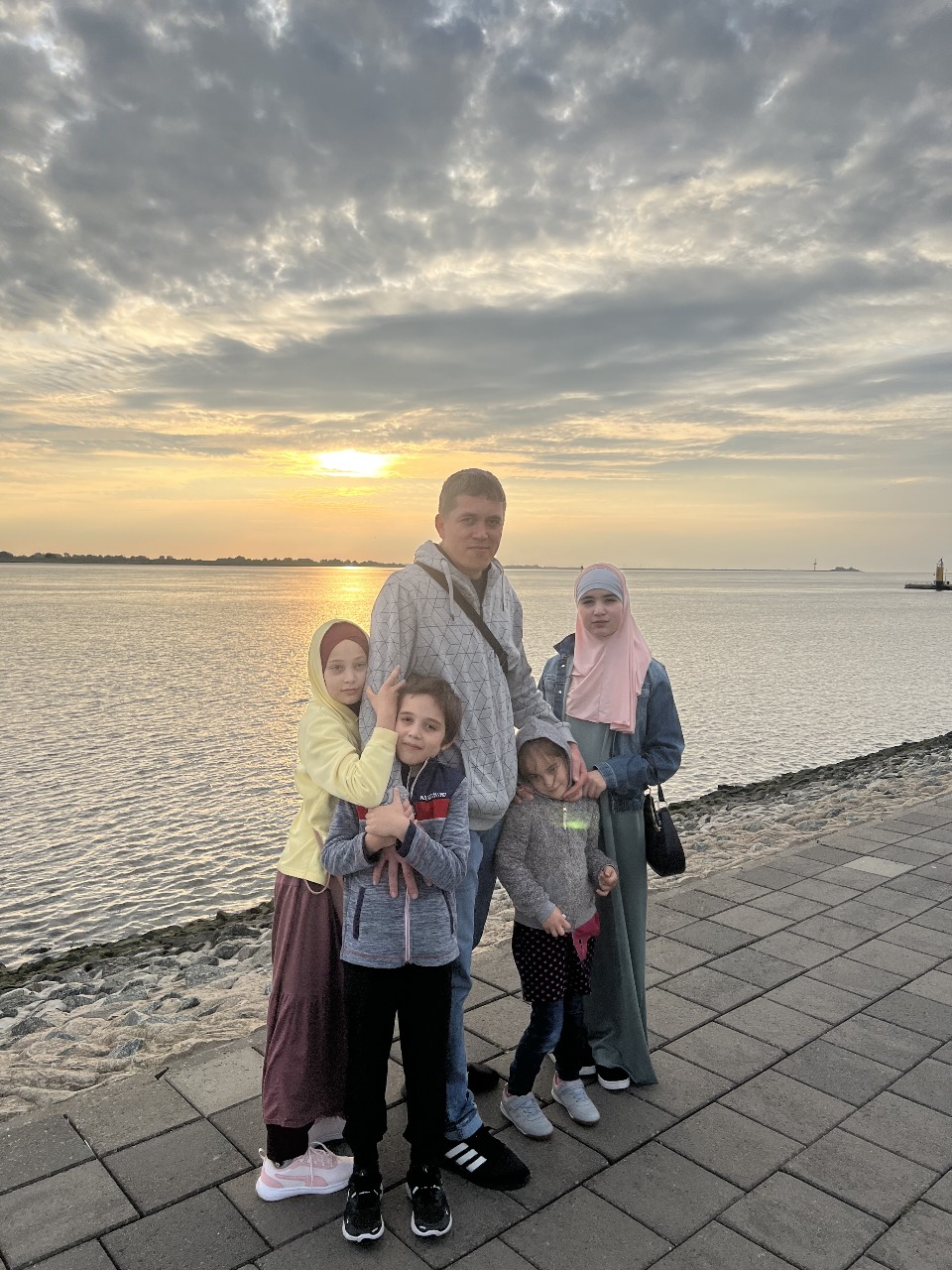 Rinat Paralamov with his children. Photo from the family archive
Rinat Paralamov with his children. Photo from the family archiveFSB stole our history – a laptop with family photos
Indeed, when you talk to Crimean Tatars, you very rarely hear the word “I”, much more often – “we”.
“For example, on May 18 (the Day of the deportation of the Crimean Tatar people in 1944 – Ed.), we gather and say prayers for those who have passed. We perform other rituals, rejoice together, grieve together. When we are together, it is easier to live,” says the Crimean Tatar.
Although the move was not easy for him and his family.
“It’s like when you close a book and leave everything that was there in the past. And then you start another, from scratch. And only God knows how it will turn out,” says Rinat.
The Paralamov family also tries to support those who remained in Crimea and whose relatives and friends were subjected to repression by the occupiers.
“When that unfortunate situation happened to me, the support of my people gave me strength. Later, even in Germany, I met people who remembered me from Crimea and knew about what happened to me… And I don’t need anything from them but warm words of support. This is enough to keep a person morally strong,” explains the Crimean Tatar.
Despite living far away from Crimea, in a completely foreign country, the Paralamov family tries to preserve their national identity, and they consider it very important. “The main thing is that a person should feel that they belong to some ethnic group, some culture,” Rinat believes.
“And we try to do this, although it is not easy outside Crimea, away from the majority of our people. The most important thing is culture, a set of concepts, the reference points of the worldview, if I may say so. The way a person looks at the world, through which lens,” he says.
The Paralamov family managed to take very few belongings with them from Crimea, and even those they had were almost entirely left behind in Kyiv, as they fled during the full-scale invasion. They took only the most essential things with them, because they thought that the departure would not be long. Among those things was the Quran. Just as in 1944, many Crimean Tatars who were deported from the peninsula took it with them first.
“This is our main book, where we get our concepts and strength from. My wife and I read it and teach it to our children,” explains Rinat.
What he regrets is that the Russian FSB never returned his laptop. And there were all the family photos.
“Now I understand that I should have printed them, but before the occupation, it seemed unnecessary? Here they are, all together, stored, if you want to see them. And now they’re gone, and it’s very upsetting. So Russia has taken away not only our home, but also our documented family history,” says the Crimean Tatar.
Nevertheless, the family is eager to return to Crimea and believes that this will happen sooner or later.
“I dream of this. I dream of seeing my family, friends and neighbours, and of seeing Crimea,” says Rinat.
Our elders dreamed at least of dying in Crimea
The family of the former Kremlin prisoner, Deputy Chairman of the Mejlis of the Crimean Tatar people, now the Ambassador of Ukraine to Turkey, Nariman Dzhelyal, had to leave the occupied Crimea in 2024. This happened after the man was returned to Ukrainian-controlled territory as part of a prisoner exchange with the Russian Federation.
 Leviza Dzhelyalova. Photo from the family archive
Leviza Dzhelyalova. Photo from the family archiveHis wife, Leviza, also refers to their departure as a silent or hybrid deportation.
“It’s not about freedom of choice, it’s about the conditions we were forced into. Nariman could not return to Crimea after his release for obvious reasons. So my children and I went to Kyiv to visit him, and it was a very difficult move; we packed in just two days and took almost nothing with us,” the woman says.
Leviza’s family survived the Stalin-era deportation of 1944. She was born in Uzbekistan and lived there until she was eight years old. She says she remembers her return to Crimea well, and it was not easy.
“We moved to Crimea in 1991. It was a very difficult time. My parents couldn’t get jobs, and they were forced to work in the gardens, any kind of part-time job just to feed us, their children. But if you had seen the faces of our elders… They were incredibly happy to be back in their native land,” the Crimean Tatar recalls.
Leviza remembers the dream of her grandparents in exile: at least to die in Crimea.
“Can you imagine – after living their entire lives, they narrowed all their wishes down to a single dream – to have their graves in their homeland. And we buried both my grandmothers and both my grandfathers in Crimea. At least they saw it a little bit,” says Leviza.
Both she and her parents, in exile, heard about Crimea only from their elders. They talked about Crimea as their most cherished dream, a paradise on earth where everything blooms, smells, and waits for them.
When someone managed to go to Crimea from exile, they always brought something from their homeland: Crimean apples, soil, water… Everyone would gather in the family’s yard to taste a piece of this apple and drink a sip of water, because it was from Crimea.
“However, when we returned to the peninsula, the way we were greeted showed that it was not a paradise, but at least a place to survive. Yet the joy of being on our native land outweighed everything else,” Leviza says.
In Uzbekistan, her mother worked as a leading specialist in the financial department. Always with a beautiful hairstyle, wearing stilettos, the daughter remembers her in those days. The family had a three-room apartment with a loggia in the centre of Guliston, Sirdaryo Region, with well-developed infrastructure nearby.
“That is, the conditions were good for living. And then we leave everything and go to Crimea. My father brought us to a place where there were three houses, one of them was ours. And all around were tall, tall thorns, taller than me, an eight-year-old. That was the first time I saw my new home, although it was more like an earth-house without a floor. But it was Crimea,” Leviza recalls.
Gradually, other Crimean Tatars began to build nearby, and so a small Crimean Tatar settlement was formed in Oktiabrske (Crimean Tatar name Biiuk-Onlar).
Despite the fact that Leviza’s mother had a fairly high position in Uzbekistan, she could not get a job in Crimea. Because she is a Crimean Tatar. Her father worked part-time as a builder, but it was not a permanent job. My mother had to stay at home, take care of the cattle and the garden.
“Everything that we grew and produced with our own hands fed us. The fact that we had a cow helped us a lot: we made our own milk, sour cream, and cheese. We almost never had money, even for clothes,” says the Crimean Tatar.
Later, when the locals realised that Crimean Tatars were not some thieves who would “come and slaughter everyone”, as Soviet propaganda claimed, but hospitable people who could help at any time, attitudes towards them in Crimea began to change for the better. But it took almost ten years for this to happen.
“What surprises me the most is that, despite all the difficulties, our grandparents did not even hate the people who treated them with such injustice. That, after experiencing so many horrific events, they were able to preserve their humanity and sincerity,” says Leviza.
 The Dzhelyalov family. Photo from the family archive
The Dzhelyalov family. Photo from the family archiveThe Dzhelyalov family have been living in Kyiv for a year now, but Leviza still feels that she misses Crimea. For a Crimean Tatar, it is not just a homeland, but something more important: a place of strength and a place of unity.
“The separation from Crimea is very painful for me, very painful. I never thought that I would ever have to experience what our elders did during the Stalin-era deportation. Only now I realise how difficult it was for them to be away from Crimea,” the woman says.
Forced departure from the peninsula is the pain of every Crimean Tatar, so it is a hybrid deportation to stay alive and save your family, she says.
And she immediately clarifies: “But we must understand that the vast majority of the Crimean Tatar people live in Crimea despite everything“.
“They are intimidated by the occupation authorities, only they know about the difficulties and dangers of living under occupation, but they will not leave because this is their own land: they have been rebuilding their lives on the peninsula for half a century, returning to their roots. They returned to stay, not to leave again,” says Leviza.
“I myself wouldn’t have left Crimea if it weren’t for what happened with Nariman. Never,” she says.
Since Russia’s arrival on the peninsula, it has become more difficult for Crimean Tatars to preserve their national identity. Before the occupation, as of 2014, there were Crimean Tatar classes and schools. Leviza shared how she, then a kindergarten teacher, opened a Crimean Tatar group.
“The Crimean Tatars had their own TV channel, ATR, which was very popular. It was with its creation that our youth began to realise that speaking Crimean Tatar was fashionable, and they began to strive to learn it and wear national clothes,” Leviza says.
There was a Crimean Tatar radio, newspapers and magazines. After 2014, the ATR was closed, and the Crimean Tatar channel Millet, which is convenient for the occupiers, was created instead, broadcasting Kremlin propaganda. The radio also stopped broadcasting, and the oldest newspaper, Krym, is now closing down…
All Crimean Tatar groups in kindergartens were closed, replaced by bilingual ones – teaching two languages: Russian and Crimean Tatar. However, if you look at the curricula, the use of Crimean Tatar is allowed only about 20%, Levisa says.
“So basically, you can say hello, goodbye, and maybe once during a lesson, mention that ‘bear’ is ‘ayu’ in Crimean Tatar. That’s very little, considering that before, we used to communicate with the children entirely in our language,” the woman explains.
They also reduced the study of Crimean Tatar in schools, leaving half an hour of language and half an hour of literature per week for Crimean Tatar classes.
“If the locals had a choice, they would send their children to Crimean Tatar schools. But there is no choice. There is nothing to read in Crimean Tatar, nothing to watch. Social projects that could be implemented have also been stopped,” says the Crimean Tatar woman.
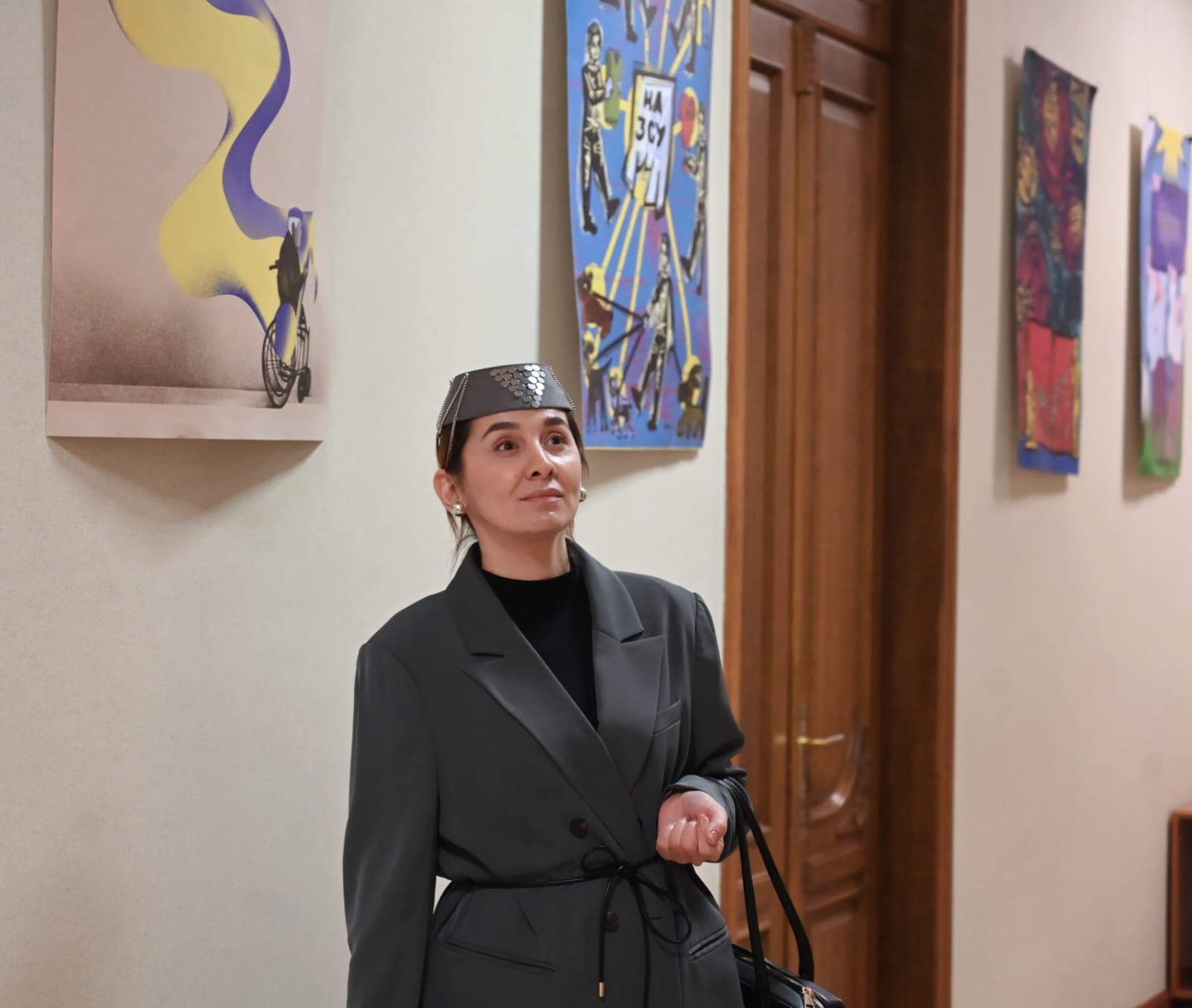 Leviza Dzhelyalova. Photo from the family archive
Leviza Dzhelyalova. Photo from the family archiveThe only thing her people are holding onto now, where all their strength is focused, is the development of Crimean Tatar culture.
“This exists in Crimea. And it must be approached very carefully, not seen as acceptance of the occupation. As for me, this is a way of self-preservation as a nation. But do they have a choice? No, they don’t. Because the only thing the Russian authorities in the peninsula have not banned is culture. At least for now,” Leviza believes.
As an example, she cited one of the latest exhibitions by the Crimean Tatar artist Asan Barash : the pain is reflected in every painting, you can see all the experiences and worries of people who are now living under occupation.
“In any case, culture can only thrive where the majority of its people live. Undoubtedly, Crimea is Ukraine. But in Kyiv, I perceive myself as a diaspora, because I am not with my people,” she says.
Leviza is convinced that Crimean Tatars must preserve their culture and national traditions now, under occupation, in order not to lose themselves.
“As for our family, we had a path to Nariman’s liberation before. Now it has ended, and another one has begun – the journey to return home. My heart and soul are there, with my people, no matter where I am physically. For my husband, it is even more difficult, because he was cut off from people in general and from Crimea for three years,” Leviza says.


